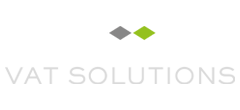- Home
- Luxembourg
- Luxembourg – VAT changes for 2025
Luxembourg – VAT changes for 2025

Luxembourg – VAT changes for 2025
New VAT exemption regime for small businesses, extension of the reduced rate in the art sector, and changes to the place of taxation for virtual access to online events. Discover the VAT changes that may impact your business starting from January 1, 2025.
Context
Bill No. 8406, submitted to the Chamber of Deputies on July 1, 2024, primarily aims to transpose Directive (EU) 2020/285 from February 18, 2020, concerning the special regime for small businesses, as well as Directive (EU) 2022/542 from April 5, 2022, regarding the rules for taxing virtually delivered events and value-added tax rates.
These new provisions will come into effect on January 1, 2025.
Increase in the national VAT exemption threshold and new cross-border exemption regime
One of the key provisions of the bill is the transposition of Directive (EU) 2020/285 from February 18, 2020, regarding the new regime for small businesses. This new regime will replace the current exemption system.
Since the existing rules no longer reflect the realities of international business activities, the reform’s goal is to simplify tax procedures for small businesses by reducing the cost of compliance with VAT reporting obligations.
The national VAT exemption
Companies with their main economic activity based in Luxembourg and an annual turnover below a certain threshold benefit from the national VAT exemption regime. This threshold is €35,000, and Bill 8406 proposes raising it to €50,000 from January 1, 2025.
Excluded from this regime are companies opting for a specific regime (VAT Group, flat-rate agricultural and forestry regime, option to subject property rentals to VAT, etc.) or those involved in the delivery of new means of transport.
A taxpayer who opts for the national exemption regime:
– Exempts their domestic sales of goods and services from VAT, but cannot deduct VAT paid on purchases.
– Must include the special note “VAT not applicable – Article 57bis of the amended law of February 12, 1979” on their sales invoices. Bill 8406 allows simplified invoices for these taxpayers.
– Must file an initial declaration informing the VAT administration of their activity under the exemption regime and report their annual turnover in Luxembourg each year.
It should be noted that Bill 8406 introduces a new tolerance allowing businesses to remain in the exemption regime if the threshold is not exceeded by more than 10%.
In case the threshold and the 10% tolerance are exceeded, the taxpayer must apply the normal VAT regime from the first day of the month following the threshold exceedance, and for the following calendar year. Bill 8406 specifies the normal regime will apply from the first day after the threshold is exceeded.
We recommend verifying your exemption regime’s compliance with applicable rules and contacting us if in doubt.
New cross-border VAT exemption regime
The new cross-border exemption regime, effective in 2025, applies exclusively to taxpayers whose main economic activity is based in an EU member state. Those based outside the EU are not eligible.
To benefit from this regime, the taxpayer’s turnover within the EU must not exceed €100,000.
Luxembourg taxpayers meeting this condition can benefit from exemptions in other EU countries. They must verify the applicable national exemption threshold in the respective country, as their annual turnover in that country must not exceed the set threshold.
In practice, how to proceed ?
The Luxembourg taxpayer must notify the Administration of Registration, Domains, and VAT of their intention to benefit from the exemption regime in another EU member state. They must also declare their quarterly turnover in each member state. Notifications and declarations should be made electronically via an application developed by AEDT in collaboration with the MyGuichet.lu platform.
A taxpayer who opts for the cross-border exemption regime will be assigned an “EX” identifier.
In the event of exceeding the threshold in the Member State, the Luxembourg taxpayer must:
-
either register for VAT in the Member State where the threshold was exceeded in order to declare their operations for which they are liable for VAT;
-
or, in the case of services provided to individuals, register for the One-Stop Shop (OSS) in Luxembourg in order to declare their taxable operations there.
The bill also introduces the possibility for small European businesses not established in Luxembourg to benefit from the national exemption regime in Luxembourg:
- If their annual turnover in Luxembourg does not exceed the threshold of €50,000.
- If their total annual turnover within the European Union does not exceed the cross-border threshold of €100,000;
- If the taxpayer has previously notified the Member State in which they are established of their intention to benefit from the exemption regime in Luxembourg and if they hold an identification number with the suffix ‘EX.’
Under this new regime, the foreign taxpayer is exempt from reporting obligations in Luxembourg. However, when their annual sales exceed the national exemption threshold, they must:
-
either register for VAT in Luxembourg in order to declare their operations for which they are liable for VAT;
-
or register for the One-Stop Shop (OSS) in their Member State of establishment, if the services are provided to individuals.
We invite you to assess the impact of these new rules on your clients located abroad, and to contact us if you have any doubts.
Place of taxation for virtual events
Access to cultural, artistic, sporting, scientific, educational, entertainment, or similar events is taxable at the place where these events actually take place.
With the increasing prevalence of virtual events involving live interaction, there were uncertainties about where such events were deemed to take place.
To ensure the taxation of services in the Member State of consumption, Directive (EU) 2022/542 specifies the place of taxation for virtual events.
Starting from January 1, 2025, virtual events will be taxable at the place of establishment or residence of the participants, whether they are professionals (access rights – B2B) or individuals (all services related to such events – B2C).
We invite you to update your billing systems and other settings to take this new taxation rule into account, and to contact us if you have any doubts.
Example of applying the new regulation starting in 2025:
A Luxembourg-based training company provides virtual training to taxable persons established or residing in France, Italy, and Germany. These trainings will be taxable as of 2025 in France, Italy, and Germany. The company must issue invoices to its clients that comply with the mandatory requirements under Luxembourg VAT law.”
In cases where the participants are non-taxable persons (B2C), the company may need to register for VAT in each Member State where the participants reside in order to declare and remit the collected VAT to the competent VAT authorities. However, in such cases, the services may be declared via the OSS system to reduce VAT compliance costs.
Reform of the VAT regime on works of art: extension of the reduced rate of 8% and reduction of the scope of margin scheme sales.
To date, Luxembourg art galleries pay a reduced VAT rate of 8% on certain purchases of works of art, without being able to deduct this VAT, and apply a standard VAT rate of 17% on the profit margin made during resale.
Indeed, the VAT Directive allows, under certain conditions, the application of a reduced VAT rate on imports and on deliveries by the artist or their rights holders of works of art, collectibles, or antiques.
Directive 2022/542 prohibits the combination of a reduced VAT rate on purchases and the application of VAT on the margin during the resale of such goods, starting from January 1, 2025.
As a reminder, VAT on purchases is not deductible for art galleries that apply the VAT margin scheme. By eliminating the generalized reduced VAT rate on works of art, this directive could have heavily impacted the Luxembourg economy and stakeholders in the art sector.
To mitigate these impacts, the LAFA (Luxembourg Association for Art Galleries & Practitioners) and VAT solutions held discussions with the Ministry of Culture and the Ministry of Finance.
The government has listened to these arguments and, like its French and German counterparts, has decided to extend the benefit of the reduced VAT rate to all transactions involving works of art.
Thus, even though taxable resellers (art galleries, art agents) will no longer be able to apply the VAT margin scheme on the resale of works purchased at the 8% rate, they will be able to subject the sale of all works of art to a reduced VAT rate of 8% (except when applying the margin scheme) and deduct the VAT on their purchases.
This measure significantly limits the impact of Directive 2022/542 and allows Luxembourg to remain a prime location for the art sector.
We invite you to update your billing systems and other settings to account for these new rules, and to contact us if you have any doubts.
Other upcoming changes
In addition to these new reforms, the bill includes several other modifications to Luxembourg VAT law in order to align some of its provisions with the structure of Directive 2006/112/EC, adapt the references accordingly, and make some linguistic adjustments.
Discover our services
VAT Solutions offers a range of services to assist you with your VAT-related challenges in Luxembourg and internationally:
– Diagnostic of your VAT organization, your flows, and the methods for preserving proof of exempt operations, as well as assessing the impact of new VAT rules;
– Confirmation of the VAT treatment of your flows;
– Coaching/training;
– Management of VAT obligations in Luxembourg and abroad: assistance, preparation, and submission of VAT identification requests and VAT returns.
Contact us
Phone number : +352 26 945 944
Email : info@vat-solutions.com
For more content, check out our LinkedIn page here.

By agreeing, we’ll assume that you are satisfied with our use of cookies on your device.
If you continue navigating, we’ll assume that you are happy to receive all cookies from our website.
Otherwise, you can change your settings at any time.
En acceptant, nous supposerons que vous êtes satisfait de notre utilisation des cookies.
Si vous continuez à naviguer, nous supposerons que vous acceptez de recevoir l’ensemble des cookies de notre site web.
Sinon, vous pouvez modifier vos paramètres à tout moment.

